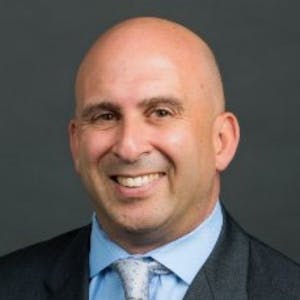
The seemingly inexorable rise of sports gambling continued last week, as Colorado became the 19th US state to legalize betting on professional, collegiate, motor, and Olympic sports. With an array of state laws in place, the regulatory landscape around the sports betting ecosystem is still in its nascent stages.
We know that the major professional leagues have long prevented all team and league employees from gambling on their games, both legally and otherwise. The NCAA has similar rules in place for the student-athletes and athletic department employees at its member institutions. But a recent conversation with a student-athlete on my campus has me reconsidering whether or not that rule goes far enough or should be replaced by policies that mimic ones adopted by several NCAA schools since the Supreme Court allowed for the legalization of sports gambling in 2018.
The aforementioned conversation was an innocuous one. I was chatting with a player on one of Columbia’s athletic teams about a number of different topics, including the team’s next game. He made an offhand remark that he thought they would win, as they had had a great stretch of practices and had some key players returning from injury. This individual was not one of my students. Unlike my prior stint at the University of Pennsylvania, I do not teach undergraduate students at Columbia, and Ivy League rules prohibit graduate transfer students from participating in intercollegiate athletics.
But I live in New Jersey and could have easily placed a legal wager upon my return home that evening if a betting line on the contest was listed. Using the language of insider trading, I possessed material, non-public information about the team that could have given me an incredible informational edge on the betting markets had I gone forth and done so.
Indeed, the student-athlete’s information – though it could have been considered mere bluster at the time – was accurate. And a wager on underdog Columbia would have been a winning one as the Lions pulled out the victory. There would have been nothing illegal about it and doing so would not have been against university rules. But perhaps it should be.
I reacted with some skepticism when first Villanova and then St. Joseph’s adopted policies that forbid all students, faculty, and staff from gambling on any events in which the university’s teams are participating (including, presumably, the NCAA tournaments). Last month, Purdue became the first public institution to do so. State universities in both Arkansas and gambling hotbed Mississippi have sought to address any potential malfeasance among its stakeholders in more subtle ways. Iowa, Penn State and others have redoubled their anti-gambling educational efforts for student-athletes and considered the use of outside monitoring companies to detect any unusual betting patterns.
Though I generally do not advocate controlling otherwise legal activity (especially my own!) and no other NCAA institutions have yet to impose a similar outright ban, this is a conversation that at a minimum is worth having on campus. After 20-plus years as a professor on NCAA Division I campuses, I feel comfortable stating that many ‘non-insider’ university faculty and staff have the potential to wield undue influence over and engage in improper conduct with the student-athletes on their campus when it comes to a number of matters, including those involving legalized sports gambling.
The reality, of course, is that enforcement of even a well-drafted, unambiguous, strict, campus-wide prohibition is nearly impossible. The potential deterrent effect alone, though, could be enough to stifle any potential wrongdoing. It could also be interpreted as a statement of the institution’s values. At a minimum, the conversations around the permissibility of legal sports wagering by those on campus are well worth having.